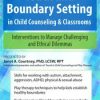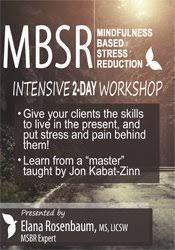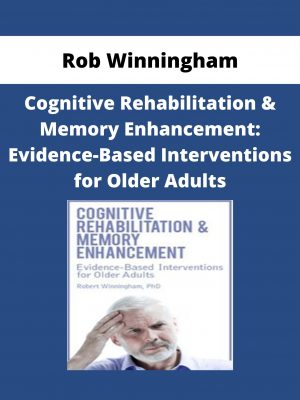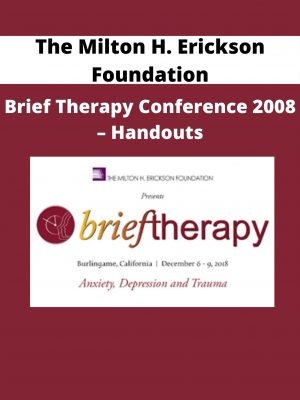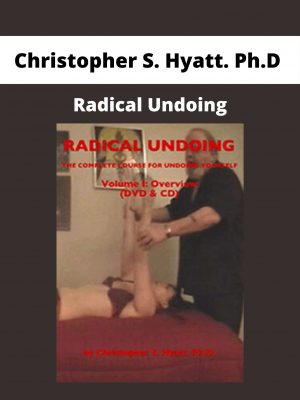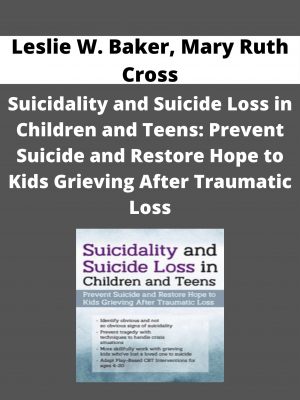Elana Rosenbaum – 2-Day Certificate Course, MBSR, Mindfulness Based Stress Reduction
$300 Original price was: $300.$113Current price is: $113.
Shopping Instructions:
- DISCOUNT 15% : SHOP15
- Product Delivery: Within 1 – 12 hours after purchase.
This caring and incredible instructor was Jon Kabat-Zinn, the founder of Mindfulness-Based Stress Reduction (MBSR).
Elana Rosenbaum – 2-Day Certificate Course, MBSR, Mindfulness Based Stress Reduction
A Note From Your Speaker
I remember working as a psychotherapist in a non-profit HMO, seeing client after client. They were anxious, panic-attack prone or just unable to cope with stress. They had seen physicians with little success. I was of no help. I was stuck in a rut treating symptoms and focusing on what was wrong rather than treating them as an individual and reinforcing what was right.
Desperate to find something better for myself and my clients, I walked into a meditation class with the most amazing, dynamic and confident teacher. After one session I was more energetic, better able to cope, and found myself more attentive with my clients.
This caring and incredible instructor was Jon Kabat-Zinn, the founder of Mindfulness-Based Stress Reduction (MBSR).
That was 30 years ago and since then, along with the help of Jon Kabat-Zinn, I have been able to transform my life and my practice, using these very principles I discovered at that yoga class back in Worcester, Massachusetts. I became an instructor alongside Jon, started my own practice, and was beginning to see incredible treatment outcomes with my clients. I was feeling energetic and confident in myself and my clinical work.
Then in 1995 I was diagnosed with cancer. I put Mindfulness-Based Stress Reduction to the test and experienced first-hand how to handle the pain and stress of chemotherapy and all that goes with a stem cell transplant.
My personal and clinical experience with this evidence-based approach led to the development of mindfulness-based interventions for bone marrow transplants at the University of Massachusetts Medical Center, Emory University and the Dana Farber Cancer Institute.
Mindfulness-Based Stress Reduction changed my life and has changed the life of many of my clients. I want to share these strategies with you.
- Present the core beliefs of Mindfulness Based Stress Reduction (MBSR) as they relate to clinical treatment.
- Ascertain the meaning of mindfulness and provide psychoeducation to clients regarding its use for reducing stress and improving mental health.
- Implement various mindfulness practices utilized to decrease stress and improve symptomology.
- Teach clients how to integrate specific informal mindfulness interventions into their daily lives to alleviate symptoms and improve level of functioning.
- Utilize breathing exercises as an intervention to refocus attention and interrupt negative thoughts and ruminations.
- Practice the process of inquiry and evaluate its ability to enhance client insight and reduce stress.
- Articulate the effectiveness of MBSR techniques in treating pain, stress, anxiety and panic in clients.
- Evaluate the use of interpersonal mindfulness in facilitating effective communication and increasing awareness in the client.
- Appraise the applicability of neuroscience research to stress reduction and ascertain its clinical implications.
- Determine specific adaptations of MBSR practices that can be utilized to treat symptoms of anxiety, depression, addiction and trauma.
- Establish MBSR practices that are developmentally appropriate and effective for children and adolescents.
- Articulate the methods by which MBSR can be interfaced with psychotherapy practices to improve clinical outcomes.
Would you like to receive Elana Rosenbaum – 2-Day Certificate Course, MBSR, Mindfulness Based Stress Reduction ?
Foundational Principles
- The Origin of MBSR
- Goals and Principles
- Populations Served
- Assessment and Orientation
- MBSR Ground Rules
- Teacher competencies
The Curriculum – Themes
- Class 1-3 Grounding Mindfulness in the Body
- Class 4-5 Stress Reaction versus Response
- Class 6-7 Communication and Interpersonal Mindfulness
- Class 8 Summation and Bringing Mindfulness Home
- All Day Session
Establishing Mindfulness Practices
- Defining Mindfulness
- Introducing Mindfulness Experientially and Verbally
- 7 Essential Attitudes in Establishing Mindfulness
Establishing Intention and Commitment to Practice
- Language – Using Gerunds and the Vernacular
- Leading an Awareness Exercise: The Raisin
Guidance in Formal Mindfulness Practices
- The Body Scan
- The Sitting Meditation with Awareness of Breath
- Yoga
- Walking Meditation
- Loving-Kindness Meditation
- Practice in Leading a Mindfulness Meditation
Applying Mindfulness to Daily Life
- Creating Home Practices
- Use of Homework
- The S.T.O.P.
- The Three Minute Breathing Space
- Awareness Exercises
Clinical Issues: Working with Difficulties
- The Process of Inquiry including Role Playing and Practice in Inquiry
- Working with Feeling
- Working with Pain and Stress
- Working with Anxiety and Panic
- Application of Neuro-Science Research
Adaptations of MBSR for:
- Depression
- Addictions
- Children and Adolescents
Inter-personal Mindfulness and Communication
- Akido for MBSR
- Use of Dyads
- Group Process
- Interface with Psychotherapy
Limitations of Research and Potential Risks
- Various definitions of mindfulness
- Research validity and reliability
- Client may experience initial increase in symptoms
- Special considerations for severe mental illness
Related products
HEALTH & MEDICAL
HEALTH & MEDICAL
HEALTH & MEDICAL
Matthew Troester – How Much Sleep Do We Need and How to Get It
HEALTH & MEDICAL
HEALTH & MEDICAL


